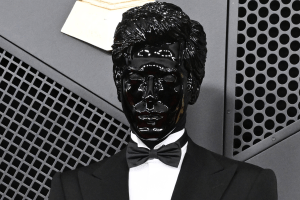The murder case of Hae Min Lee, first told to the world in the 2014 podcast Serial, has had continued ups and downs over the years that listeners are just now catching up on.
The odd murder case became a story known around the globe when it was rehashed in the NPR-produced podcast Serial in 2014. Now, the story is getting worldwide attention again as HBO airs its new docuseries, The Case Against Adnan Syed. However, Serial fans are finding a lot of repetition in the show, with new updates few and far between.
Videos by PopCulture.com
The debut episode of The Case Against Adnan Syed premiered last Sunday. It summarized much of what was covered in Serial. In a review published by TV Guide, Pilot Viruet said that much of the first three episodes follows the same pattern.
“It’s all pretty repetitive for those familiar with the case and it doesn’t add much to the story — and sometimes, unfortunately, the jumpy nature of the episodes makes it even harder to follow,” she wrote. “It’s in these moments that The Case Against Adnan Syed skews more boring than eye-opening.”
Still, whether the show is saving them for later episodes or skipping them altogether, there are some new developments in Syed’s case, at least on the legal side, to examine. Here are a look at some of the biggest developments since Serial came to a close.
2014 Appeal

Syed made his first appeal in 2003, which was denied. In 2010, he made an appeal for post-conviction relief based on much of the evidence in Serial — including the new information around cell phone tower tracking as well as the testimony of witness Asia McClain. The appeal sat for a long time before it was officially denied in 2014, the same year that Serial came out.
2015 Appeal, Asia McClain Testimony

Things kicked into high gear the following year. In February of 2015, the Maryland Court of Special Appeals approved Syed’s application for permission to appeal. In May, the court remanded the case to circuit court to decide whether the testimony of Asia McClain was admissible. In Serial, McClain revealed that she had a strong alibi for Syed, but his lawyer, Cristina Gutierrez, had never contacted her. It was one of the strongest points in Syed’s favor.
The superior Court agreed to hear Syed’s case in November.
Post-Conviction Relief Proceedings

Baltimore City Circuit Court Judge Martin Welch ordered that Syed’s appeal for a new trial be re-opened, “in the interests of justice for all parties.” The hearing lasted for five days instead of the intended two, and many people attended after hearing about Syed’s case.
This included podcast host and investigator Sarah Koenig. McClain gave her testimony, stating that she had been talking with Syed at the library at the exact time prosecutors claimed he was committing the murder of Hae Min Lee.
2016 New Trial

Judge Welch granted Syed a new trial in June of 2016. He ruled that back in 1999, Gutierrez “rendered ineffective assistance when she failed to cross-examine the state’s expert regarding the reliability of cell tower location evidence.”
He also vacated Syed’s conviction. However, he denied bail for Syed, ordering him to stay in prison as he awaited his new trial.
2018 New Trial

The case came to a crawl as the new trial got underway. In March of 2018, the Maryland Court of Special Appeals upheld Judge Welch’s decision to grant Syed a new trial. However, the state asked the court to review Judge Welch’s decision to overturn Syed’s conviction.
In July, the Court of Appeals agreed to hear arguments from both the state, who wanted Syed’s conviction upheld, and Syed’s representatives, who did not. Seven judges gathered in November for a hearing, and they considered the arguments on both sides for months.
2019 Denial

Finally, on March 8, just days before The Case Against Adnan Syed premiered, the Court of Appeals voted on the hearing. In a 4-3 vote, they decided to reverse Judge Welch’s ruling, effectively denying Syed a new trial.
The Court of Appeals generally agreed that Gutierrez had given “deficient” legal counsel to Syed. However, they did not feel that the new evidence would have been enough to convince a jury of his innocence.
Key Evidence

In the simplest terms, Syed’s hopes for exoneration hang on just a few key pieces of evidence. They were discussed in Serial and developed further by his legal team in the time since.
The major one is McClain’s testimony. Her story is solid and unwavering, in stark contrast to the statements of Jay Wilds, who was a witness against Syed.
Meanwhile, there is the matter of the cell phone towers, which the prosecution used heavily against Syed in 1999. In her review, Viruet refers to the “still pretty confusing details” of these records, but it is clear that they were not are reliable as the jury took them for at the time.
Finally, behind all of that is the DNA testing being requested by The Innocence Project. In 2014, Deirdre Enright, head of the project, told Koenig that they had requested DNA tests on Lee’s case. Investigators identified several other potential suspects who had carried out similar crimes in the area at the time, and this could exonerate Syed by default.
That can be a long waiting game. The Innocence Project must get permission from Maryland to file for DNA testing while the appeal motion is pending, and Syed’s own legal team has yet to pursue this route. The state of Maryland has fought against DNA testing for exoneration like this in other cases as well.
Ongoing Legal Battle
We will not give up. #FreeAdnan
— Justin Brown (@CJBrownLaw) March 8, 2019
While it may sound like all the evidence in the case is at a stand-still, people are still working to find the truth in the case of Lee’s murder. One of Syed’s lawyers, Justin Brown, took to Twitter shortly after the court denied his new trial in March, vowing to carry on.
“We will not give up. #FreeAdnan,” he wrote.
“We are devastated by the Court of Appeals’ decision but we will not give up on Adnan Syed,” he added on his website. “Unfortunately we live in a binary criminal justice system in which you either win or you lose. Today we lost by a 4-3 vote.”
“Our criminal justice system is desperately in need of reform,” Brown carried on. “The obstacles to getting a new trial are simply too great. There was a credible alibi witness who was with Adnan at the precise time of the murder and now the Court of Appeals has said that witness would not have affected the outcome of the proceeding.”
“We think just the opposite is true. From the perspective of the defendant, there is no stronger evidence than an alibi witness,” Brown concluded.
Most Viewed
-

John Billings, Billings Artworks, has two cases of stunt Grammy statues that he will take with him for the upcoming awards show in his studio in Ridgway Colorado Jan. 12, 2019. Stunt statues are used for props in various situations in the show after after parties. (Photo by Andy Cross/MediaNews Group/The Denver Post via Getty Images) -

PUNXSUTAWNEY, PENNSYLVANIA – FEBRUARY 2: Groundhog handler AJ Dereume holds Punxsutawney Phil after he saw his shadow predicting 6 more weeks of winter during the 139th annual Groundhog Day festivities on Friday February 2, 2025 in Punxsutawney, Pennsylvania. Groundhog Day is a popular tradition in the United States and Canada. If Punxsutawney Phil sees his shadow he regards it as an omen of six more weeks of bad weather and returns to his den. Early spring arrives if he does not see his shadow, causing Phil to remain above ground. (Photo by Jeff Swensen/Getty Images)






